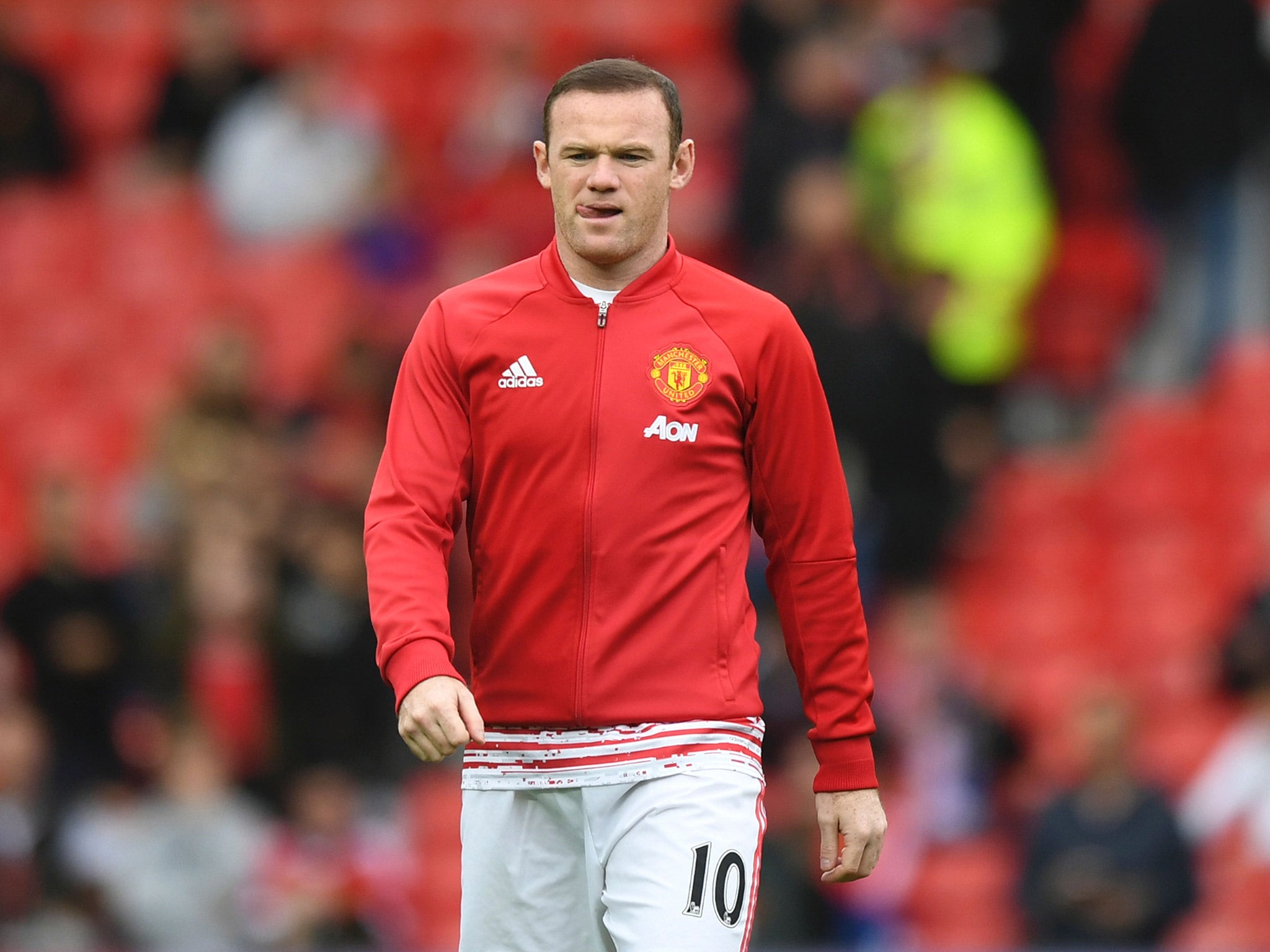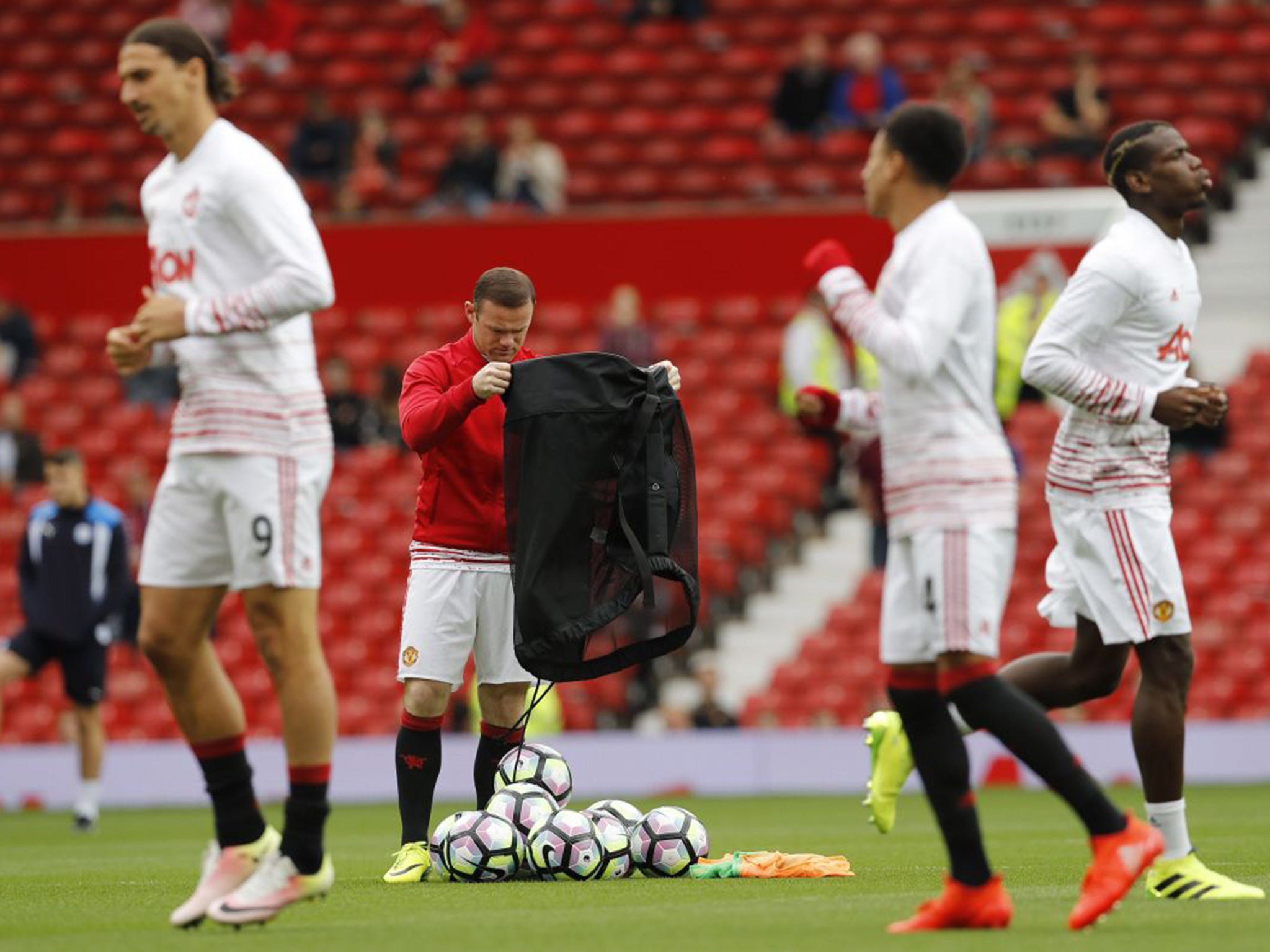Manchester United news: Wayne Rooney reaps what he sows and will never be revered like Sir Bobby Charlton
Rooney tried to leave the club twice but settled for improved contracts. Now he's out of the side, and the path back into it looks questionable at best

Your support helps us to tell the story
From reproductive rights to climate change to Big Tech, The Independent is on the ground when the story is developing. Whether it's investigating the financials of Elon Musk's pro-Trump PAC or producing our latest documentary, 'The A Word', which shines a light on the American women fighting for reproductive rights, we know how important it is to parse out the facts from the messaging.
At such a critical moment in US history, we need reporters on the ground. Your donation allows us to keep sending journalists to speak to both sides of the story.
The Independent is trusted by Americans across the entire political spectrum. And unlike many other quality news outlets, we choose not to lock Americans out of our reporting and analysis with paywalls. We believe quality journalism should be available to everyone, paid for by those who can afford it.
Your support makes all the difference.It was late afternoon on Saturday when Wayne Rooney walked out of the Manchester United dressing room and down the players’ tunnel with sons Kai and Klay, and a football. This has become a routine in these past few years when he has had the run of the place. A kick-about with Kai and his mates in the Stretford End six-yard box has often ensued.
Considering that the side had just demonstrated in their 4-1 win over Leicester that Rooney, an 80th minute substitute, is dispensable now, the way he rejected the request to stop and speak was gracious. His demeanour in the dressing room pre-match impressed the players, too. “He is often one of the most vocal and he was the same today,” said stand-in captain Chris Smalling. “He's still the same, in the changing room talking. That's something that will never change with Wayne."
But Saturday felt like the beginning of an uncoupling between player and club. The brutality of sport resides in the speed of this process. One minute you are the totem, the next minute you are dust. Just ask Robin van Persie and Yaya Toure.
For Rooney, there will also come the realisation that despite a quite extraordinary contribution over the course of 12 years – more United appearances than any player bar Ryan Giggs, Paul Scholes and Gary Neville and a tally of 246 goals: three short of Sir Bobby Charlton as the club’s greatest – no-one is likely be casting a bronze statue of him to sit alongside the Holy Trinity outside the stadium. He won’t be mourned when he has left the place.
He is reaping what he sowed when he and his representatives have negotiated his two new contracts in the past nine years. Both were sought when he held all the cards: the first in 2010 when Ferguson was trying to wring the last drops out of his squad; the second four years later when David Moyes was desperate to keep Rooney, as Chelsea circled and Mourinho tilted a skirt.
On neither of these occasions did the machinations flatter Rooney. There was the unforgettable night before United played Bursaspor in the Champions League tie in 2010 when he issued a statement questioning the "continued ability of the club to attract the top players in the world" and "win trophies." Those words angered Patrice Evra, who said after the 1-0 win that "if one player does not trust the other players, that player should not play."
Rooney said six months later: "You know, when you look at it now, how wrong was I.” But he was £100,000-a-week richer by then, winning the contract. Study Ferguson’s narrowed eyes in the images of him and Rooney marking the new deal. The manager never forgave him for the way he held United to ransom.
Moyes was just relieved to secure his own Rooney contract images, though it was not pretty in the summer of 2013. The player, keen to leave for Chelsea at the time, was “confused and angry” by the publication of several pieces stemming from interviews on the club’s pre-season tour, which he’d missed through injury. A simple telephone call would have told him his place in the side was not at threat. In the end, money talked again and he stayed.

The new deals have created a rod for Rooney’s back. The attraction of letting a player go is far greater when he is earning £300,000-a-week. If Rooney cannot fight his way back into the side with regularity for the significant games, losing him from the pay-roll would seem to have its attractions.
Supporters will also cut him less slack. Strikers deteriorate as day follows night. Bobby Charlton scored only 12 goals in each of his last two seasons before he realised the end was nigh during a 3-1 defeat to Birmingham City in March 1973. “I chased and chased but there was nothing there for me… and I lost that last belief that I could still be a United player.” But his commitment to the cause was never called into question.
The economics of the £5bn Premier League make bronze statues harder to earn these days. Not even Thierry Henry and Alan Shearer – two modern recipients – had their agents challenge their loyalty to a club by telling them that a quarter of a million a week could be theirs if they agitated.
Smalling said Rooney would be back. "Well, I think he's a very experienced guy and he's played that many games that I think it'll only be a matter of time before he's back in there and firing again because he's quality." But that assessment is questionable. The 30-year-old, one of the greatest players United have known, offers a salutary lesson for those who aspire to have their names sung through a stadium down the ages, when they are long gone.
Join our commenting forum
Join thought-provoking conversations, follow other Independent readers and see their replies
Comments